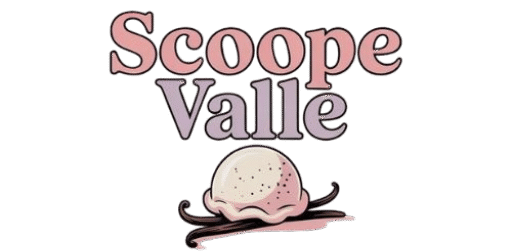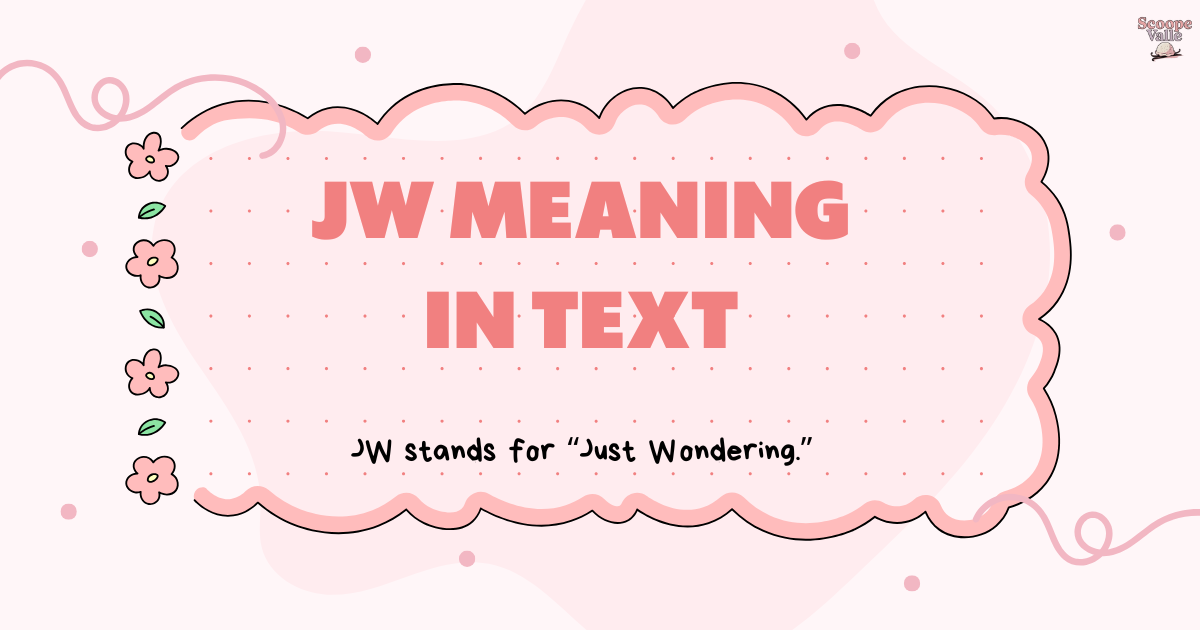In the fast-moving world of texting, online chats, and social media, short forms and slang are everywhere. One term that pops up a lot is JW. If you have ever seen this abbreviation in a message and wondered what it means, you’re not alone. JW is a simple but useful term that helps people talk faster and more casually. This guide will explain everything about JW, including its meaning, history, and how to use it in different situations.
Definition & Meaning
JW stands for “Just Wondering.” It is a quick way to show curiosity or to ask a question without sounding too serious. Instead of typing a long sentence, people use JW to keep their messages short and friendly.
For example:
- “JW, are you free later?”
- “JW, did you watch that new movie?”
In both examples, JW softens the question. It feels casual and relaxed, which makes it perfect for friendly conversations.
Background & History
The term JW started to become popular in the early 2000s when texting and instant messaging apps began to grow. People wanted faster ways to communicate, and abbreviations became the perfect solution. Just like LOL (Laugh Out Loud) or BRB (Be Right Back), JW saved time and effort while keeping conversations natural. Over the years, it has become a common part of digital communication, used by people of all ages.
Also read: GTB Meaning in Text: A Complete Guide to Understanding and Using It (Updated)
Usage in Various Contexts
JW is flexible and can be used in many types of conversations. Whether you are texting a friend, commenting on social media, or playing a game online, JW can help you express curiosity in a friendly way.
Texting
In texting, JW is most common.
Example:
Friend 1: “JW, are you coming to the picnic tomorrow?”
Friend 2: “Yes, I’ll be there!”
It makes the question sound casual and less demanding.
Social Media
People use JW in comments or direct messages when they are curious.
Example:
“JW, where did you buy that jacket? It looks amazing!”
It shows interest without making the question too formal.
Gaming
Gamers often use JW during chats to coordinate with teammates.
Example:
“JW, does anyone need a healer for the next round?”
It’s quick and perfect for fast-paced gaming conversations.
Casual Conversations
Even outside of texting or gaming, JW can appear in everyday online chats.
Example:
“JW, have you tried that new café downtown?”
Common Misconceptions & Clarifications
Some people may confuse JW with other abbreviations like J/W or think it stands for something else, such as Just Watching. While context always matters, JW almost always means Just Wondering.
Another common misunderstanding is using JW in formal situations. It is an informal term and may not fit in professional emails or business messages.
Similar Terms & Alternatives
| Term | Meaning | Use |
|---|---|---|
| IDK | I Don’t Know | To admit you are unsure |
| FYI | For Your Information | To share important details |
| BTW | By The Way | To add extra information |
| IMO | In My Opinion | To share personal thoughts |
How to Respond to This Term
The way you reply to JW depends on the tone of the conversation. Here are some common styles:
Casual Response
If someone is asking a simple question, just answer normally.
Example:
Friend: “JW, are you going to the concert tonight?”
You: “Yes, I already got my ticket!”
Funny Response
You can add humor to make the chat fun.
Example:
Friend: “JW, why do you always wear that blue hat?”
You: “Because it makes me feel like a superhero!”
Professional Response
If JW is used in a semi-formal setting, stay polite.
Example:
Colleague: “JW, have you reviewed the report?”
You: “Yes, I’ll share my feedback soon.”
Regional or Cultural Differences
JW is mostly used in English-speaking countries, but people in other regions who use English online may also recognize it. In some cultures, full sentences are preferred over abbreviations, so JW might not be as common. However, on global platforms like Twitter, Instagram, or Discord, it is widely understood.
Comparison with Similar Terms
| Term | Meaning | Formality |
|---|---|---|
| JW | Just Wondering | Casual |
| IDK | I Don’t Know | Casual |
| FYI | For Your Information | Neutral |
| BTW | By The Way | Casual |
Usage in Online Communities & Dating Apps
JW is also popular on platforms like Tinder, Twitter, Reddit, and gaming forums.
- Dating Apps: People use JW to ask light questions and start conversations. Example: “JW, what’s your favorite travel spot?”
- Online Communities: In forums or gaming groups, JW is often used to ask for advice or opinions without sounding pushy.
Hidden or Offensive Meanings
The good news is that JW does not have any hidden or offensive meanings. It’s a safe and positive abbreviation. The only thing to watch out for is tone. If used with sarcasm, it might sound rude, but the abbreviation itself is harmless.
Suitability for Professional Communication
While JW is great for casual chats, it is not ideal for professional communication. In workplaces or formal emails, using full sentences is better.
For example:
- Instead of “JW, did you finish the report?” say,
- “I was just wondering if you had a chance to finish the report.”
This keeps your message professional and respectful.
FAQ’s
What does JW stand for?
JW means “Just Wondering” and is used to show curiosity in a casual way.
Is JW formal or informal?
It is informal and best for friendly chats, texting, or social media.
Can JW mean something else?
In rare cases, it might mean “Just Watching,” but most of the time it means “Just Wondering.”
Is JW safe to use online?
Yes, JW has no hidden or offensive meaning, making it safe for casual conversations.
Should I use JW at work?
It’s better to avoid it in formal emails. Use complete sentences in professional settings.
Conclusion
JW is a small abbreviation with a big impact on modern communication. Standing for “Just Wondering,” it helps people ask questions and express curiosity quickly and casually. From texting friends to chatting on social media or gaming, JW makes conversations smoother and more relaxed. Just remember that while it’s perfect for casual use, it’s not the right choice for professional emails or formal messages.
Tylor John, with five years’ experience, beautifully crafts information on all topics and inspiring readers worldwide with positivity, faith, creativity, love, and hope.

